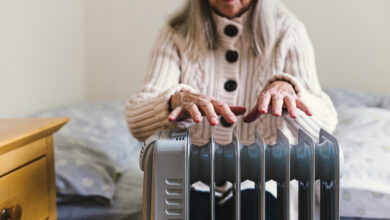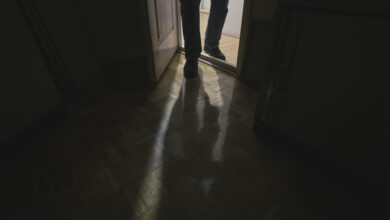Ending the embarrassment
An award winning UK invention that brought women back out of hiding has now arrived in Australia.
At 50 years young, Britain’s Carole Kendall felt, for the first time, free to enjoy life. However, this turned out to be fleeting feeling and all if a sudden her daughter Gaynor Morgan – who once saw her mum as the life and soul of any party – watched on as her mum’s confidence deteriorated.
She gave up on an active relationship and provided excuse after excuse as to why she couldn’t join in any activities that, not too long ago, she would have been the ring leader of.
Closing up when questioned by Morgan, her mum continued sliding down the slippery slope into depression. It wasn’t until some 12 months later, after a course of anti-depressants, when she finally opened up. The reason she had been hiding away was that she suffered from stress continence.
“My immediate reaction was to laugh. Not mockingly, it was more of a release of relief that it was nothing more sinister. I knew nothing of incontinence at the time,” says Morgan.
When Kendall had an operation called the Trans Vaginal Tape procedure, things started to get back to normal and she became her confident self again. However, the confidence to enter a sexual relationship didn’t return, with Morgan putting this largely down to the anti depressants and psychological effects.
Explaining her experiences to her daughter, in her own mind Kendall believed she had become a freak and constantly worried about wetting herself in public.
“It was easier for her to remain at home. Everything was a compromise to hide the underlying problem. Just like millions of women the world over go through simply because they don’t understand their own body and are too afraid to ask for help and advice,” says Morgan.
A year after the operation her incontinence had returned.
“The doctor said due to mum being overweight the problem re-occurred. He said give up smoking and lose weight. If only it were that easy. Her condition was once again overlooked and under diagnosed,” says Morgan.
Leaving the doctors in tears she told her daughter she couldn’t go through this again.
“In the one year of her being ‘urine free’ I had done a small amount of research. I knew there was a solution, it was just finding the right one to suit mum.”
The search began to find a produce other than pads and surgery that could help, because at that point nothing seemed to work for Kendall. Mother and daughter, who both had nursing experience – Kendall 15 years as a nurse and Morgan with geriatric nursing experience – started studying urology to help them fix this silent and self alienating problem.
There were many crazy ideas but finally, at the dining room table in Kendall’s kitchen, the eureka moment came. Helping them get to this point was Kendall’s admission that the problem wasn’t as bad during menstruation when using a tampon.
With the aim of reducing the flow through the urethra and supporting the bladder they developed a prototype using Morgan’s five-year-old daughter’s art material – self-hardening clay – then sealing it with silicone sealant. For hygiene reasons it was covered with a condom. The end result – a type of tampon.
After the first test, Kendall wore it every day and started going out again without the slightest leak.
Their creation – IncoStress – has come a long way since it’s inception at the kitchen table.
Kendall’s sudden death in 2004 from a heart condition means that she hasn’t been able to witness the success of the creation, but Morgan has continued working at getting the product to as many women as possible so that they too can become “stress incontinence survivors like mum”.
And now IncoStress, which has won a host of awards, is available to Australian women.
A reusable device that lasts up to six months, it looks like a ribbed tampon, made of medical grade silicone. It sits inside the vagina, exerting gentle pressure on the urethra, and correcting the position of the bladder, preventing embarrassing urine leaks during coughing, laughing and other activities that create pressure within the abdomen.
Morgan acknowledges that pelvic floor strengthening and other options are a long-term cure for stress incontinence. But says IncoStress allows women to manage their problem, while working on strengthening their pelvic floor muscles. “If the kitchen tap was leaking, we’d get it fixed, not just put a cloth under it,” she says Gaynor.
“If you’ve got a leak, don’t suffer in silence - go out and get some help, because you are not alone.”
IncoStress is available from www.plevicfloorexercise.com.au.
Email: [email protected]





